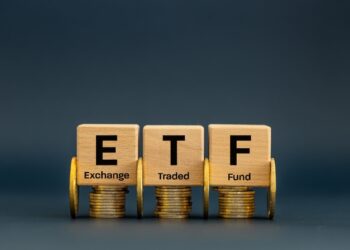Investors are not always comfortable with the decisions made by fund managers, especially during volatile periods. Some managers cave in to their demands, while others don't. Dominic McCormick explains how to handle investor behaviour.
The business of investing can be frustrating. I am not referring here to the challenges involved in striving to be a good investor, formidable though these are.
Rather, I am referring to the challenges for investment businesses to actually do the right thing from an investment perspective given the specific business pressures they face related to investor and adviser behaviour.
Jeremy Grantham of GMO has long talked about the challenges of “agency” and “career risk” in investment management, where investment decisions are influenced by the fear of upsetting and losing clients and ultimately one’s job.
As a result, the business can be influenced away from making what it believes are the right investment decisions to making decisions that help keep clients happy in the short term.
This particularly applies to many larger, institutionally structured fund managers and is why many largely hug the index.
It can also explain why some of these institutions and other investment professionals sometimes get caught up in major investment fads and fashions.
I was reminded of these pressures at the recent Annual General Meeting (AGM) of Platinum Asset Management.
While Platinum’s longer-term performance remains strong, recent relative performance has been poor, although it’s certainly not the first time this has been the case since its inception in 1994.
The meeting saw the Platinum chairman and directors peppered with long-winded questions on recent investment decisions.
Why were they underweight the US?
Why did they get the currency wrong?
This contrasted sharply with previous year’s meetings where few of the manager’s decisions or views were seriously questioned.
Investors seem to have forgotten that Platinum are contrarian investors. The manager often buys companies that are out of favour and have recently performed poorly.
This is often uncomfortable for investors and can also contribute to periods of poor performance if those companies continue to perform poorly for a period.
Platinum’s Kerr Neilson reminded the audience of this contrarian approach by stating he was currently buying companies in “basket case” economies like Japan and had even recently been buying Spanish and Greek stocks.
However, he asked investors to judge the results of these decisions by their performance in the future, and not, by implication, by how nervous they make investors feel now.
When performance of funds – and asset classes generally – is good, most investors and advisers spend little or no time understanding why this has been the case – and by extension, what could go wrong from here.
But when performance is poor they often misunderstand the reasons and simply assume that something must be wrong at the asset management business – or with the asset class.
Occasionally, poor performance of an active fund manager will be indicative of some major problems at the business, such that poor performance could reasonably be expected to continue.
This could include, for example, excessive funds under management for the fund’s strategy, the loss of key investment personnel, or major problems in the structure of decision making/implementation. However, this is the exception rather than the rule.
Usually, poor recent performance from established, higher quality active managers is the result of a particularly unfavourable market environment, the nature of their typically contrarian approach or some “one off” mistakes that should not be naively extrapolated forward.
Unless there are some of the major structural problems mentioned above, poor performance at such managers will usually eventually turn around, often when unexpected and with a period of very strong outperformance after that.
More often than not, exiting a poorly performing manager at such times will prove to be a costly decision for investors.
The questioning of strategy at Platinum’s AGM extended to the business itself.
A financial planner and shareholder present suggested that recent large fund outflows meant that Platinum should review its business strategy and hire a team of business development managers (BDMs), despite this not being part of their approach in the 18 years since inception.
The board was also questioned as to whether the manager would come out with a new lower risk, even fixed interest product.
This highlights the pressures that particularly apply to listed fund management businesses where it is not just the behavioural pressures of clients but also shareholders that can become issues.
In a business like Platinum where the founders hold more than two thirds of the shares there is little chance that shareholders can effect major change, unlike other listed fund management businesses with more diversified shareholder bases where the threat of a board spill or key management changes under shareholder pressure is significant.
In any case, Platinum’s model has been not to hire BDMs, on the basis that the portfolio managers and analysts are best placed to communicate what is going on in the portfolios to clients.
Certainly, it would seem an excessive reaction to change the group’s distribution model totally in response to what looks like a not unexpected period of poor performance and a kneejerk, possibly irrational, response from some investors and financial planners.
Contrast Platinum’s situation to the current global equities fund favourite of many advisers, Magellan.
They have had a very different approach where a growing team of BDMs has been a significant part of their business model.
While this team has done a good job, it is clear that in recent times they have had something that has been relatively easy to sell.
Magellan’s particular investment philosophy revolves around high quality global brand name companies. Many of these are household names.
They make investors in their funds feel comfortable and are the types of stocks that investors worldwide have wanted to own in the nervous years since the GFC.
Recent performance of the Magellan funds has been very strong. But many of these global brand name stocks have had a fantastic run and are arguably becoming overvalued.
It’s not as if Magellan doesn’t seem to have some sympathy with this view. In its listed vehicle Magellan Flagship Fund (ASX code MFF), the manager moved more than half the portfolio into cash around May this year and still held over a third in cash at the end of October.
However, the unlisted Magellan Global Fund has remained close to fully invested throughout. The portfolio managers for the respective portfolios are the two co-founders.
The key question for investors should be – “Is now the right time to be adding to, or having high weightings to, global brand name companies – whether run by Magellan or anyone else”? (Indeed Platinum’s own international Brands fund has also been a very good performer in recent years).
Is now not the time to be reducing or even exiting such funds and moving towards funds with more flexibility to focus on second-line, more cyclical, arguably cheaper companies?
Instead many are exiting funds focusing on the latter, but if they thought about it rationally they would be hard pressed to come up with a sensible justification for this.
One of the advantages of covering listed investment companies as part of our investment universe is that it gives you great insights into the sentiment of investors and advisers.
Around one year ago, MFF traded at a discount to Net Tangible Assets (NTA) of more than 20 per cent, after having reached a maximum discount of almost 40 per cent in 2008.
More recently, MFF effectively traded at a small premium if you adjust for the value of the one-for-three options recently issued.
In contrast, Platinum’s listed vehicle Platinum Capital Ltd (ASX Code PMC) spent many years at a significant premium but in the last year has moved to a 10-15 per cent discount.
Will Platinum outperform Magellan in the future? Nothing is certain in investments, but I suspect the best gains in many global brand name stocks that dominate Magellan’s portfolio are behind us.
A more flexible approach that digs deeper for value and contrarian themes and stock opportunities is arguably better placed to deliver in the future.
In the meantime MFF at NTA or a small premium is vulnerable to a downgrade in its market rating while PMC could well be re-rated when relative performance improves.
If there was only one rule that investors and advisers should adhere to in building sensible investment portfolios it would be to not chase recent performance – ie, running after recent good performance and away from recent poor performance.
I have no doubt that this is one of the most costly strategies for investors and advisers over time.
Investments are unlike any other business or “product” out there. What is an easy sell and most appealing to investors now is often what’s bad for them – ie, excellent recent performance or a hot asset class.
In contrast, what is hard to sell and unappealing – ie, poor recent performance or an out of favour asset class – is more often than not a reasonable turnaround prospect.
When the retail crowd embraces a consumer product – say the iPhone – it is probably a reasonable signal that it is a good product that provides utility and benefits for buyers, although no doubt “fashion” is part of the equation too. Still, the “crowd choice” in such cases is more often than not a sensible one.
In contrast, when the retail “investment” crowd embraces a particular asset class strategy or fund manager in a major way, the odds are that this is primarily unsophisticated “performance chasing” that will ultimately prove a poor decision and result in significant losses.
Look at the many examples of “easy to sell” products and categories that have badly cost investors in recent decades.
Structured products, excessive gearing, tax-driven products, technology funds in 2000, most finance company debentures. All disasters.
Many are familiar with the Dalbar study of mutual fund flows in the US. Investors chase performance and end up with money-weighted returns more than 4 per cent per annum below the simple average return for the underlying markets/funds.
While some have questioned Dalbar’s methodology, it fits with most anecdotal evidence of how retail investors and advisers behave.
Some commentators have argued that no active managers are worth their higher fees, and have cited the huge flow of money into exchanged-traded funds (ETFs) globally as evidence that consumers are always making a wise choice by choosing these lower-fee passive funds over active managers.
But the problem is many of these retail ETF flows are making exactly the same mistake that Dalbar identifies in mutual funds and currently going into bonds and high yield areas on the back of good recent returns which are now vulnerable to poor performance.
Further, some ETFs investing in less liquid areas are vulnerable to structural problems if they became too large.
ETFs are useful vehicles but the idea that they are all free from “blow up” risk or that reactive retail investors cannot lose a lot of money investing in them is fantasy.
In many respects they have become the perfect vehicle for another form of performance chasing that probably will end badly for some investors.
Will investor behaviour as a whole ever change? I doubt it. Yes, better education will stop some investors making major mistakes.
But there are always new inexperienced investors coming through or old investors giving in to their emotional responses in the search for quick gains or avoiding short-term pain. Business pressures will be a significant factor for the latter group.
On the other hand if there wasn’t such irrational behaviour going on there would be fewer opportunities for good asset allocators, fund selectors and active managers themselves.
Good investment businesses need to understand and accept the pressures and stresses of dealing with investor behaviour as part of the job, and take a longer-term view, despite the challenges that this presents.
Some argue that because retail investors and many advisers chase performance, the only alternative is a simple diversified passive approach across the major asset classes.
This approach clearly is better than performance chasing but it is not the only one, particularly in a world where there is less certainty that the attractive “risk premiums” this approach relies upon will be delivered over acceptable time frames for investors.
The other approach we favour is to incorporate more valuation discipline, be more discerning, and be more contrarian in building portfolios.
I am not suggesting that this is easy but it can be done, with its most valuable benefit being its tendency to stop investors doing particularly dumb things.
Warren Buffett said it best: “Be fearful when others are greedy and greedy only when others are fearful”.
Disclaimer: Dominic McCormick holds shares in Platinum Asset Management Limited and various Select portfolios hold shares in Platinum Capital Limited.
Dominic McCormick is the chief investment officer of Select Investment Partners.





